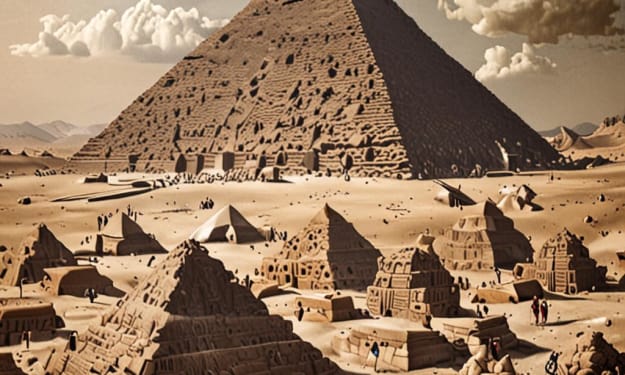The Israel-Palestine Conflict : A Comprehensive Overview
Historical Roots, Modern Challenges, and Future Prospects

Historical Background
The Israel-Palestine conflict is a long-standing geopolitical issue that has its roots in the late 19th and early 20th centuries. This era witnessed the rise of nationalist movements among both Jews and Arabs in the region of Palestine, then part of the Ottoman Empire. The conflict's modern phase began with the Balfour Declaration in 1917, wherein the British government expressed support for the establishment of a "National Home for the Jewish People" in Palestine, creating tension with the Arab inhabitants.
Post World War I Developments
Following World War I and the dissolution of the Ottoman Empire, Following World War I and the dissolution of the Ottoman Empire, Britain assumed control of Palestine under a League of Nations mandate. Jewish immigration to Palestine increased, particularly in the 1930s and 1940s, fueled by European anti-Semitism and the Holocaust. Arab resistance grew correspondingly, culminating in violent clashes and revolts.
In 1947, the United Nations proposed a partition plan to resolve the conflict by establishing separate Jewish and Arab states. This plan was accepted by the Jewish leadership but rejected by the Arab states and Palestinian representatives.
The subsequent declaration of the State of Israel in 1948 led to the first Arab-Israeli war. Israel emerged victorious, expanding its territory beyond the UN partition plan, while Jordan and Egypt controlled the West Bank and Gaza Strip, respectively. Hundreds of thousands of Palestinians became refugees, an issue that remains central to the conflict today.
Key Wars and Occupation
The conflict intensified with subsequent wars, particularly the Six-Day War in 1967, during which Israel occupied the West Bank, Gaza Strip, East Jerusalem, and the Golan Heights. This occupation has been a major point of contention. United Nations Security Council Resolution 242 called for Israeli withdrawal from occupied territories in exchange for peace, a principle that has underpinned numerous but unsuccessful peace efforts.
Peace Process and Challenges
The Oslo Accords, signed in 1993 and 1995, were a significant attempt to resolve the conflict. They established the Palestinian Authority (PA) and granted it limited self-governance in parts of the West Bank and Gaza Strip. The accords envisioned a two-state solution, but final status issues, including borders, the status of Jerusalem, Israeli settlements, and the right of return for Palestinian refugees, were left unresolved.
The Second Intifada (2000-2005) marked a period of intense violence and further eroded trust between the parties.
Israel began constructing a separation barrier in the West Bank, citing security concerns, while Palestinians viewed it as a land grab.
Present-Day Scenario
Today, the conflict remains unresolved, characterized by periodic violence, political stalemates, and deep-seated mistrust. As of 2024, Israel continues to control much of the West Bank, with over 600,000 Israeli settlers living in the territory, including East Jerusalem. The Gaza Strip, under the control of Hamas since 2007, faces severe restrictions and periodic military confrontations with Israel.
Demographic and Economic Data
The population of Israel is approximately 9.94 million, including about 2 million Arab citizens. The Palestinian territories comprise around 5.1 million people, with 3.1 million in the West Bank and East Jerusalem and 2 million in Gaza.
Economic disparities are stark. Israel, with a GDP per capita of around $43,000, is a high-income country, while the Palestinian territories suffer from high unemployment and poverty rates. In Gaza, the unemployment rate hovers around 45%, and over 50% of the population lives below the poverty line.
International Perspectives and Involvement
International involvement has been significant but often polarized. The United States has historically been a strong ally of Israel, providing substantial military and economic aid. Conversely, many countries in the Arab and Muslim world support the Palestinian cause, advocating for their rights and statehood.
The United Nations and the European Union have also been actively involved, advocating for a two-state solution and condemning actions that hinder peace, such as settlement expansion and acts of terrorism. However, achieving a lasting resolution remains elusive.
Future Prospects
The future of the Israel-Palestine conflict is uncertain. While a two-state solution remains the official goal of many international actors, the realities on the ground, including settlement expansion, political divisions within both Israeli and Palestinian societies, and regional dynamics, pose significant challenges.
Innovative approaches and renewed dialogue, possibly involving broader regional participation, might be necessary to break the current impasse. Ultimately, achieving peace will require addressing core issues like mutual recognition, security guarantees, equitable resource distribution, and the rights of refugees.
The Israel-Palestine conflict is a deeply complex and multifaceted issue with historical roots and contemporary ramifications. While numerous efforts have been made to resolve the conflict, a lasting peace remains elusive. Understanding the history, current dynamics, and challenges is crucial for any meaningful progress toward a peaceful resolution.
About the Creator
Abu Razin
This is Abu Razin, an Educator, Writer, and Researcher. Simplifying complexities through articles, blogs, and engaging talks.
Enjoyed the story? Support the Creator.
Subscribe for free to receive all their stories in your feed. You could also pledge your support or give them a one-off tip, letting them know you appreciate their work.






Comments
Abu Razin is not accepting comments at the moment
Want to show your support? Send them a one-off tip.